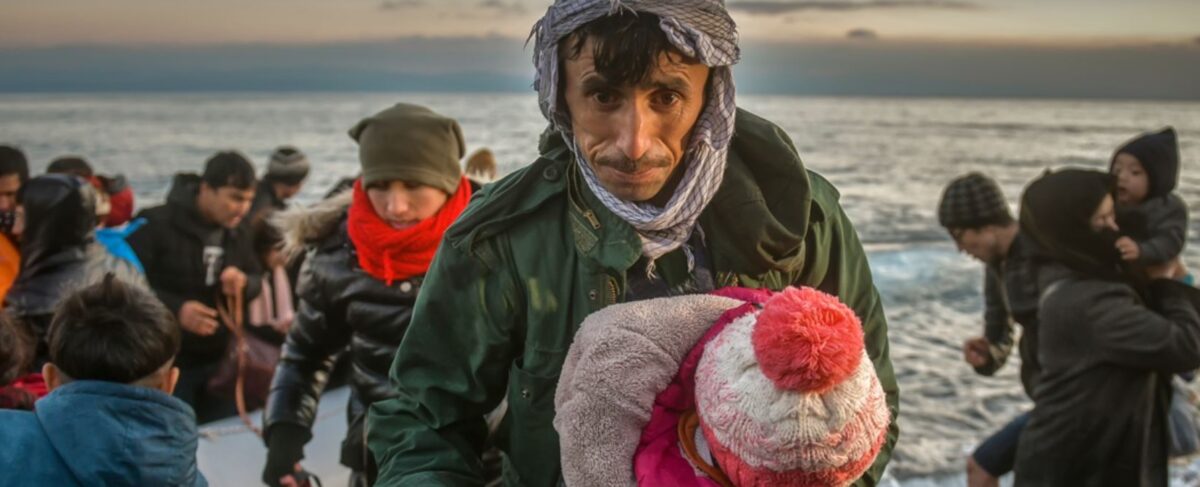In recent months we have all been shocked and saddened by media reports of the violence in Sudan and the desperate plight of its citizens. Since April, more than 250,000 people have fled from the fighting into neighbouring countries, alongside nearly two million who are internally displaced. Many of them are in desperate need, lacking even basic food supplies, or have found themselves unwelcome in their host countries.
 The suffering of the Sudanese people has sharply highlighted a refugee crisis that affects large parts of the Middle East and North Africa (MENA). 5.4 million people are still exiled from Syria, and many from other countries affected by war and instability. The region also hosts huge numbers of refugees, with some 3.9 million in Türkiye and 850,000 in Lebanon. Their presence puts additional strain on already struggling societies and economies. And tension and animosity towards them is not uncommon among the hosting nations, whose people may already be struggling to find work or put food on the table.
The suffering of the Sudanese people has sharply highlighted a refugee crisis that affects large parts of the Middle East and North Africa (MENA). 5.4 million people are still exiled from Syria, and many from other countries affected by war and instability. The region also hosts huge numbers of refugees, with some 3.9 million in Türkiye and 850,000 in Lebanon. Their presence puts additional strain on already struggling societies and economies. And tension and animosity towards them is not uncommon among the hosting nations, whose people may already be struggling to find work or put food on the table.
Facing death
Some of our viewers get in touch to communicate the intensity of the struggle they are going through or the dangers they face. Abu-Mohammed from Afghanistan told us:
If I am sent back to Afghanistan I will certainly be put to death.”
“I have been following your programmes for many years. I am from Afghanistan and after the fall of Afghanistan to the Taliban my family and I secretly fled to Iran. But the problems here, with having no documents and no work, have made my life very difficult and even impossible. If I am sent back to Afghanistan I will certainly be put to death because I was a university lecturer, and all my articles and teaching were against terrorist activity and promoted humane thinking. For these same reasons a few of my former colleagues have been killed. We are a family of three and we really need to stay alive.”
“Aliens and strangers”
“Supporting refugees through satellite television and digital media and highlighting their plight is a vital part of SAT-7’s ministry,” says Rita El-Mounayer, CEO of SAT-7. “Both our Lord and we – His people – can identify with aspects of their experience. In Matthew’s Gospel the infant Jesus flees from violence at the hands of King Herod and takes refuge in Egypt. And 1 Peter calls Christians “aliens and strangers” in their host societies, because their distinctive identity causes their neighbours to resent them.”
Though conflicts and refugee crises start to slip from our headlines, SAT-7 continues to be there for refugees – creating programmes and videos that amplify their voices, minister to their needs, and encourage their acceptance across the region. In response to the war in Sudan, we have recorded a series of short films for social media, in which refugees tell their stories of escape. The first of these attracted more than a million views when it was released on Facebook.
WATCH: Nadia and her daughters, Lobna and Naomi, who lived near the centre of conflict in Khartoum, tell the story of their escape to Egypt.
Mutiple challenges
A recent episode of the SAT-7 PARS programme Insiders looked at the culture shock that refugees can experience when they are uprooted from their home nation, and explained how they can help themselves stay mentally healthy and socially connected. A new programme, Along the Borders, is providing advice to guide them through the multiple challenges that they face. And some of the channel’s viewers have shared with us their moving testimonies of what it means and how it feels to relocate to another country.
Educating out-of-school children
SAT-7’s programme My School was launched in 2015 in response to the conflict in Syria, and since then it has been providing high-quality primary education for refugee and displaced children across the Arab World. We have recently completed the fifth and final season, and we rejoice to see My School in use in learning centres for Syrian refugees and on a leading online learning platform. Although its young viewers may be far from home, we pray that it will help them to keep engaging with their education.
“Please remember before the Lord the many refugees and internally displaced people from Sudan, Afghanistan, Syria, Türkiye and elsewhere across the Middle East, whose lives have been turned upside down by conflict and disaster,” says Rita.

